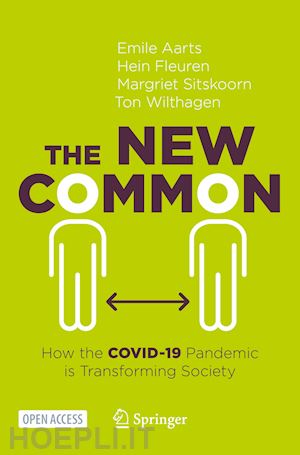Emile Aarts is a Professor of Computer Science at Tilburg University (The Netherlands). After completion of his academic studies at Radboud University Nijmegen and Groningen University, he joined Philips Research in 1983 where he worked in various research and management positions until he was appointed in 2009 as Chief Scientific Officer. In 2012 he left Philips to resume a full-time academic career as dean of the faculty of Mathematics and Computing Science of the Eindhoven University of Technology. From 2015 until 2019 he has been the rector of Tilburg University. Emile Aarts is an experienced and highly-cited scientist. He is the co-author of 20 books and more than 250 scientific papers. His most influential work is on local search, a branch of mathematical optimization that has a broad application in engineering, management sciences, and artificial intelligence.
Hein Fleuren is a Professor of Business Analytics and Operations Research (BA/OR) in Logistics at Tilburg University (The Netherlands) and is the Co-Founder and Director of the Zero Hunger Lab where Data Science helps to achieve Sustainable Development Goal 2 – Zero Hunger by 2030. In 2010, Hein changed his research focus to humanitarian supply chains because the same business analytics methods can be used with financial benefits for a company as well as for humanity as a whole. Together with his Master’s thesis students, Hein has initiated a research program at the United Nations – World Food Programme (WFP). This research has contributed a lot to the efficiency of the food supply chains of the WFP and the impact is huge. In 2012, Hein was part of the winning TNT Express team of the prestigious Franz Edelman award in Los Angeles with Tilburg University. In 2018, Hein, together with his Ph.D. researcher Koen Peters, won the DCHI Award for Humanitarian Innovation. He has previously worked for Philips Electronics, Deutsche Post AG, and TNT Express. Hein Fleuren’s main specialization is transport & distribution and in particular express networks.
Margriet Sitskoorn is a Full Professor in Clinical Neuropsychology at Tilburg University (The Netherlands) and is registered as a Clinical Neuropsychologist, Specialist BIG registration. She is the program leader Health & Wellbeing of the Impact program of Tilburg University. This program connects researchers from various fields to partners outside academia to gain new insights and solutions for the complex challenges of the 21st century. She represents Tilburg University within the VSNU Digital Society program Health & Wellbeing. Margriet Sitskoorn has published more than 100 international and national articles, books, and book chapters, and her books have been translated into several languages. Her main scientific interest is in experience-based neuroplasticity. This research focuses on the potential to regulate and capitalize on neuroplasticity in humans through cognitive, behavioral, and environmental stimulation. She is the author of several bestsellers: her book Hersenhack (2019) focuses on how the dissemination of information in the digital world can lead to personal and global problems.
Ton Wilthagen is a Full Professor in Institutional and Legal Aspects of the Labor Market at Tilburg University (The Netherlands). He is the leader of the theme ‘Empowering the Resilient Society’ of the Social Impact program of Tilburg University. He is also a member of the Social Sciences Council of the Royal Netherlands Academy of Arts and Sciences, the figurehead of the ‘Resilient Societies’ program of the Dutch National Science Agenda, the Tilburg University representative for the Digital Society program ‘Citizenship and Democracy of the association of Dutch Universities, and recently was a Fellow at the Netherlands Institute of Advanced Studies in Amsterdam. Ton Wilthagen has published and taught extensively on the themes of flexicurity, transitionallabor markets, inclusive labor markets, life-course approaches, industrial relations, and regional labor market policy. He has been involved in many European-scale research projects, commissioned among other things by the European Commission, the International Labour Organisation (ILO), the OECD, and the European Foundation for the Improvement of Living and Working Conditions.











